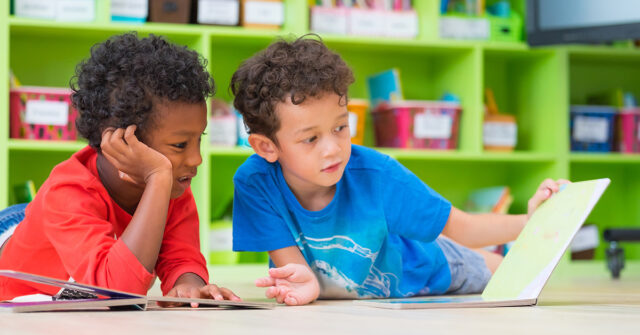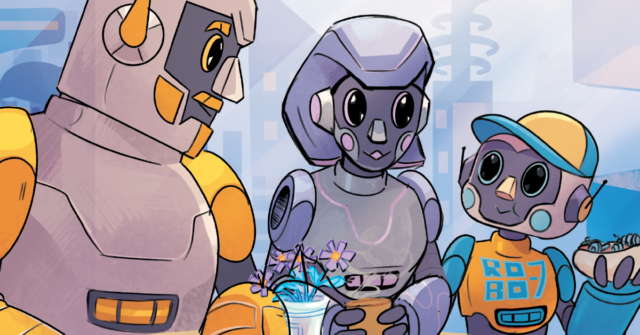
Teaching is a profession that elicits a myriad of questions throughout the day, from the rhetorical to pedagogical. Finding intellectual space to ponder these questions in a way that will impact practice can be tough, and we want to help. Our new series, “In The Quiet: Reflections on Learning” invites you into the mind of an expert in the field through a brief Q&A. So, wherever your quiet is—after the bell, on the commute, or elsewhere—please enjoy this space to reflect as you hone your craft.
In this post we hear from renowned literacy educator and author Ellin Keene, who explores how reading and writing are connected, and how to use this natural link to make planning easier and more effective.
![]()
How important is it for teachers to embrace their own journeys as readers and writers?
![]()
One of Heinemann’s earliest authors and this country’s most influential educators, Donald Graves, remarked that educators must engage in reading and writing to provide optimal instruction for students. It just makes sense, doesn’t it? At the most basic level, if we understand the joys and challenges of reading and writing, we are that much more insightful, empathic, and precise in responding to our students.
Graves suggested, and many others have echoed his call, to write very short, simple pieces as students observe to show how you’re tackling a writer’s tool that you’d like them to try. Similarly, when teachers share how and what they think about as they read, they can be more precise in their instruction. Sharing our own insights, challenges, and pleasure in reading and writing is engaging for kids and makes a more proficient reader's and writer’s processes clear: it makes the invisible visible.
There is perhaps a more compelling reason for us to engage in our own reading and writing. As adults, we have experienced the particular joy of uncovering new ideas as we read and of making our ideas clear and compelling in our writing. Reading and writing, for many educators, has become a deeply meaningful and stimulating way to experience and record our lives—reading and writing are a place where we seek refuge and solace, not to mention a great laugh or a welcome reprieve from stress.
![]()
In what ways can an understanding of the relationship between reading and writing make planning more efficient?
![]()
To be honest, I struggled in my own classroom to find time to offer a full reader's and a full writer’s workshop every day and I’ve been in hundreds of classrooms around the world where teachers fight the same battles. It seems that either reading or writing is getting short shrift no matter how we try to approach the time problem. Think about the standards we teach in this country. There is tremendous overlap between what we want readers to focus on as they read and the writer’s tools we would like our students to incorporate. While it’s not possible with every standard, the vast majority of reading standards have writing outcomes and vice versa. I’ve found that, when projecting a unit, we purposefully look for those overlaps: we can teach to reading and writing standards simultaneously, which makes much more sense to students and results in a tremendous time efficiency for us.
Imagine, for example, that you want to help students focus on the most important ideas in text, a standard that is taught in every grade, K -12. When you’re using a book to think aloud about how readers decide what is most important in text, think about what writers do in order to help their readers focus on the most important ideas. I find myself changing my focus from reading to writing multiple times in a single lesson. I may pause to think about an important idea in a text I’m reading aloud to children, and literally pivot to writing on a document camera to show them how I can make important ideas stand out in a short piece I’m writing. Soon such integration becomes so habitual, I find it difficult to separate reading and writing. I, therefore, have fewer lessons for any given week and the students have much more time to work as independent readers and writers.
![]()
How does explicitly linking reading and writing instruction support learners who find literacy learning difficult?
![]()
I would actually frame this question a bit differently. Why would we make the reading and writing process even more complicated for readers and writers who find literacy learning difficult? Think about a child you know who has been overwhelmed by learning to read and write. That child is expected to digest instruction in two (often widely variant) concepts, one that they need to apply as readers, and another that their teacher asks them to apply as writers—every day! It’s all language use to them. Why would we ask any student to try to understand a concept like writing a great lead when we aren’t supporting that learning with relevant mentor texts that literally show the child all the ways that writers create great leads? Similarly, if we want students to infer as readers, doesn’t it make sense to have them consider how writers include just enough, not too much information to allow their audience to infer?
That said, I have seen striving readers and writers flourish in an integrated Literacy Studio. The instructional focus is very clear, there is much more time for them to apply what they’re learning as independent readers and writers and the increase in independent work time allows their teachers to confer and host small groups to differentiate around their needs. I worry that our most striving learners get so much instruction in the regular classroom and in the intervention or special education setting that they have almost no time to practice. Language use is enhanced by practice, practice, practice. Sadly, the children about whom we’re most worried often have the least time to practice.
![]()
As a learner, what professional learning experience has had the most positive impact on your teaching career?
![]()
I’ve been privileged to encounter so many; it’s hard to pin down one. I will say that I long to be challenged and education provides no small dose of challenge! I purposefully consume ideas that I think may disrupt my beliefs and, uncomfortable as that can be, I find that my knowledge base and flexibility in thinking is heightened when I do. In my book Engaging Children, I talk about that process as perspective bending; I am compelled by ideas that point me in entirely new directions or even those that tweak what I’m thinking. So, reading my colleagues’ original thinking is right up there. We often come across great work as educators, but it is less common to read a piece or hear a colleague share an idea that is truly original. When I have that experience—wow, I’ve never even thought of that before—I am forever changed by it. Such ideas challenge me to create original thinking which completes the cycle of professional learning. It’s one thing to read about and hear great ideas and quite another to work with them, apply and refine them, make them even better.


